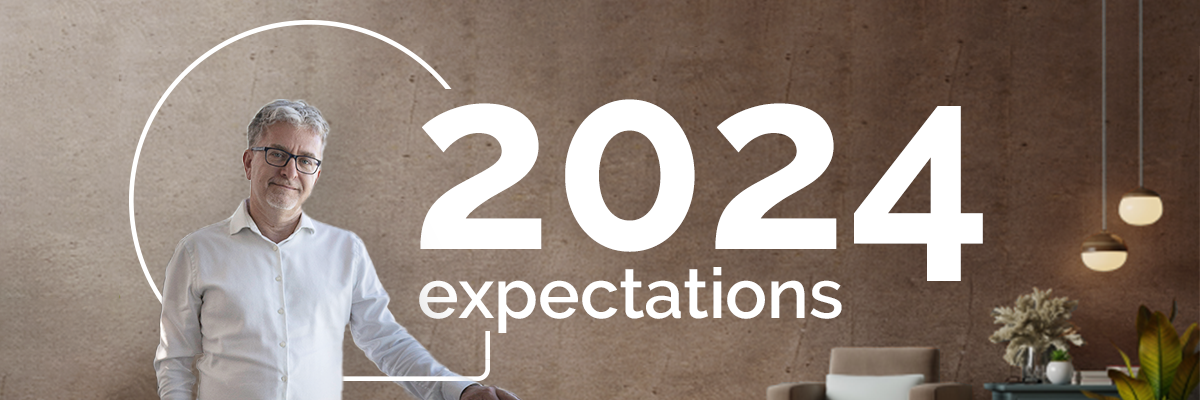As we did last year, we end 2023 with a series of interviews, in which we asked Ákos Szabó, CEO of Fluenta Europe Ltd about what lies ahead for Fluenta and what opportunities he sees in 2024.
In the first part of our interview, we talked about the present; the achievements and challenges 2023 had brought. Now we turn to 2024. What advice would you give to a procurement manager, what challenges might we face?
The classic answer is to look at how much you are buying for and to get as flexible a contract as possible. I think that is the most important thing.
Now imagine that it's the end of 2024. What would it take for you to sit back and say: it was a good year?
I'm not really the type to ever sit back. But I would make me the happiest if more of our new customers started using our new product, Fluenta One, and more of our existing partners would start to switch to this much more efficient platform.
What is it about One that is fundamentally different, more, better than what you've been offering so far?
We are thinking in a new way; there will be no more modules, only business processes, and the functions or sets of functions associated with those processes. We can do all this in a super-flexible way, which means we can adapt to the customer exactly the way they want. I think this type of flexibility will bring a new level of quality to Fluenta. Currently, cloud services still mainly work in a standard way. They have a lot of advantages, but at the same time, for example, they cannot be tailored to the specific needs of the customer, or only with serious limitations. Fluenta One will be able to overcome these limitations by offering a customized software solution, even for large numbers of partners. In addition, the customer can take the issue of data security to a higher level, as the data generated and even the runtime environment can be locally operated by the customer if they wish to do so.
If we had to name the word or phrase of the year, it would be artificial intelligence. Has this technology made or will it make a difference to procurement?
Artificial intelligence has been around for a long time, it's just been working invisibly, it hasn't been in the spotlight as much as in 2023. I'm sure it will have a big impact. The signs are already visible: larger organisations can leverage its capabilities primarily in meetings and internal efficiency, which currently means faster memo-writing, and quicker written documentation and task allocation. Let's not forget that chatGPT, which has just burst onto the scene, is a generative AI, a language model, meaning its strength is communication, so this is the aspect where it's being implemented in a spectacular way.
As for areas other than communication, it will take a few years before it really catches on. Today's AI needs well-structured data, and most companies have no such data yet, or only a little bit of it. Medium to large companies will therefore strive to obtain good quality, structured data.
So the first step is to have a database that AI can do something with. It's clearly inward thinking, work in progress, it's not very visible to the outside yet. But our new service, Fluenta One, has been built from the ground up to be able to use AI.
You had a blog post about a world in the process of being de-globalized. At first glance, this is a surprising statement, since all we hear is that globalization is unstoppable. Or is it?
My answer is, in truth, yes and no. Some processes are unstoppable. These include most IT applications. But how and where these are used, how they protect their own data, or how economic relations are developing, is already changing. So there's a good chance that a German company is less likely to work with a Chinese company and will look for a Turkish partner instead. I believe that this globalization and de-globalization are occurring at the same time; their impact is being felt at the same time.
Take China's role in globalization. Ever since the Covid pandemic, everyone knows how crucial this country is to supply chains, with the sudden shortage of everything in such a short time. Well, I think that this primary role will soon be taken over by India.
And speaking of supply chains... Let's not forget that there are increasing EU and international efforts to make them transparent. The Germans have already started and the French will begin next year. This means that the various suppliers and their suppliers' suppliers will also have to certify that they don't use child labor, that do fair trade, that they don't keep workers below the minimum wage, and so on and so forth.
This focus on due diligence will have a profound impact on procurement.
In many cases, there is also a change of suppliers. We see this clearly with the biggest customers: these reconsideration efforts are very serious. The energy crisis and the war between Russia and Ukraine have shaken up supply chains and they have had to be rebuilt and rethought.
You have also appeared on foreign markets. What is the direction and philosophy of this expansion?
It's our belief that the best customer base for us is one that's available online. We did some research on this, we came up with some hypotheses on what we think are the markets that would be into our products. We have five or six potential markets on the agenda, and we will select some we can test with our online tools. We want to launch these internal projects in January and expect results in the second or third quarter.
Does this expansion concern the European market?
That's right, yes. We are mostly focusing on the EU or other European markets, and obviously we will look for countries with similar social structures. When we were looking at markets, we were looking not only at their economic potential, but also their level of digitization, how much others have already broken into the market, how close these markets are to us culturally.
As an interesting little snippet, a key user of one of our Nigerian partners relocated to Canada, but continued to work with us because they realized that there was no such service in that area. We would be happy to continue working together and enter this market as well.
Are you staying fully in the field of procurement?
I can't say when yet, but after the launch of Fluenta One, we want to expand and achieve results in other areas besides business support for procurement. Of course, this won't happen overnight. We don't want to rush anything, especially without letting go of procurement.
And finally, let's not forget that we have a lot of new functional products on the market. For example, we have LkSG solutions, and of course, our most popular option, auctions. The latter is already very successful: customers say it's like a football match. They sit in a meeting room and watch the system making them money.
We also have an auction mentor service. Here, the partner doesn't have to do anything except tell us what they want to achieve, and we set up the auction and manage the whole process without them having to do anything operational.

.png)
-2.jpg)

